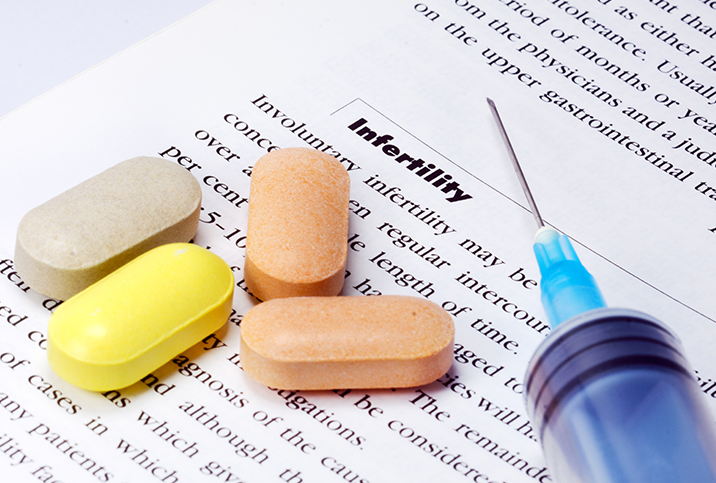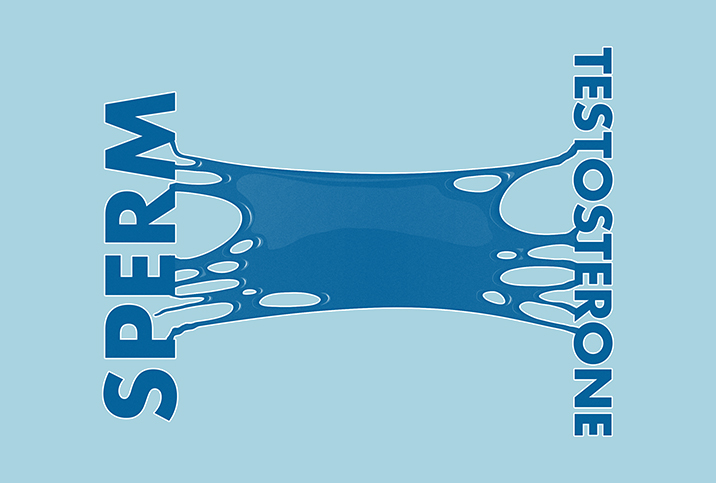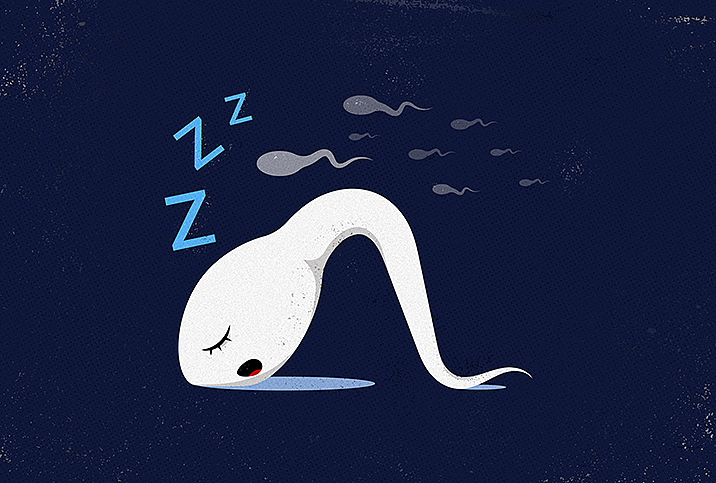This Infertility Breakthrough Could Boost Sperm Health

When a couple has trouble conceiving, it's often the woman who chooses to undergo a reproductive procedure, such as artificial insemination or in vitro fertilization (IVF), which is actually multiple procedures. Even if the issue lies with the man, which it does in more than one-third of infertility cases, women are often subjected to testing first.
If researchers in Denmark and the United States are correct, this process is about to change, at least in cases where sperm quality is the issue.
A coincidental discovery of a protein called RANKL in testicles got researchers thinking: If RANKL can cause the degradation of bones, where it is most often present, and lead to osteoporosis, maybe it is a cause of poor sperm quality, too. And since a drug called Denosumab inhibits RANKL in bones—it is used around the world to treat osteoporosis—maybe it can do the same in the testicles and boost sperm quality.
"For many years, we've been researching the role of vitamin D in fertility," study lead Martin Blomberg said in a press release. "Then one of the studies suddenly identified the RANKL protein in the testicles, and this was very surprising since RANKL has not been observed in the testicles before."
The discovery led researchers from the Department of Growth and Reproduction at Rigshospitalet in Copenhagen and the Division of Bone and Mineral Research at Harvard University to study the effects of Denosumab in mice and testicle tissue models, and then in 12 infertile men. The results, while based on a small sample, were promising: more cells, more sperm.
Researchers were so enamored with the findings that Rigshospitalet, a highly specialized hospital, took out a patent for the use of the drug and others like it for fertility treatment.
RANKL's responsibility for infertility isn't limited to affecting sperm count. In a paper about the research so far, published in April 2021 in the journal Nature Communications, study authors said high RANKL levels in seminal fluid provided a higher specificity in identifying infertile men than merely total sperm count. That's one more reason to inhibit the pesky protein.
Now, a randomized study including 380 infertile men is being prepared. Each man will undergo a blood draw, which will be analyzed for two different hormones that should indicate who will benefit from the treatment. The subjects will draw lots, and half will be given a dose of Denosumab and the other half a placebo. Researchers will monitor the men for 150 days to determine the effect on their sperm quality.
The study will end in 2024, according to Rigshospitalet.
What does all this potentially mean for infertile men? First of all, it isn't expected to help all infertile guys.
The results, while based on a small sample, were promising: more cells, more sperm.
"We estimate that Denosumab can be a treatment option for around 30 to 40 percent of infertile men, based on our identification of biomarkers that we are testing in the upcoming study," researchers told Giddy in an email.
What men and their partners should really note—and this obviously depends on the outcome of the study—is that a one-time dose of Denosumab should last several months. One dose, a potential increase in sperm count and a better chance of conception. If the couple is unsuccessful after a period of time and wants to try again, the man can take another dose.
"Based on the preliminary study of the effect of Denosumab on men's sperm count, we have reason to believe that, for a significant number of men with mildly to moderately poor sperm quality, a single injection with the Denosumab drug will be enough to increase the sperm count for a period of up to several months," Blomberg said, "significantly increasing these men's chances of impregnating a woman."


















